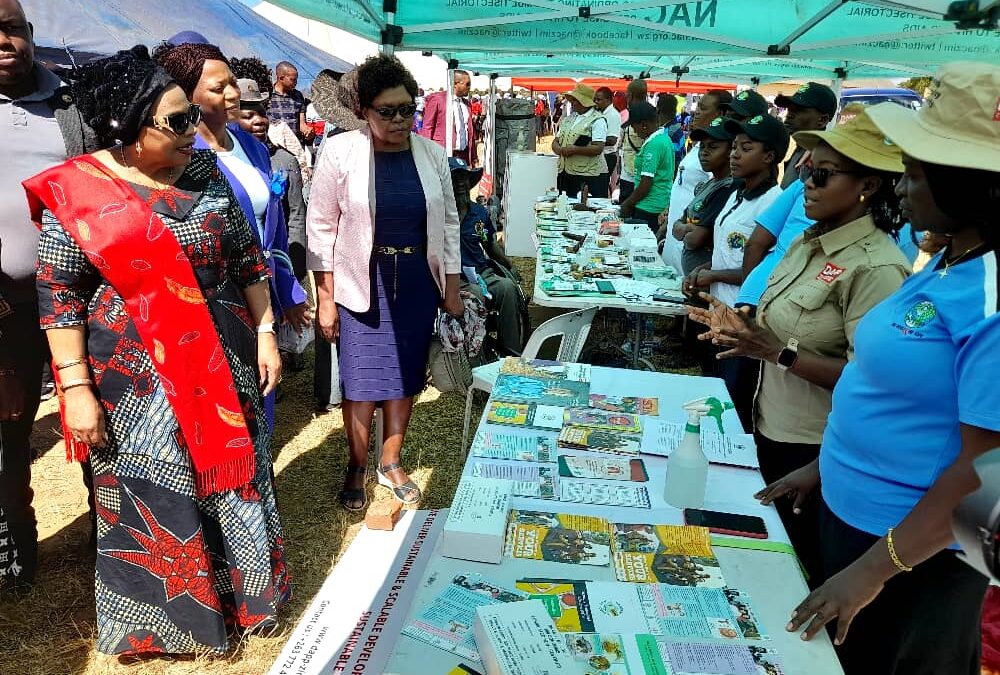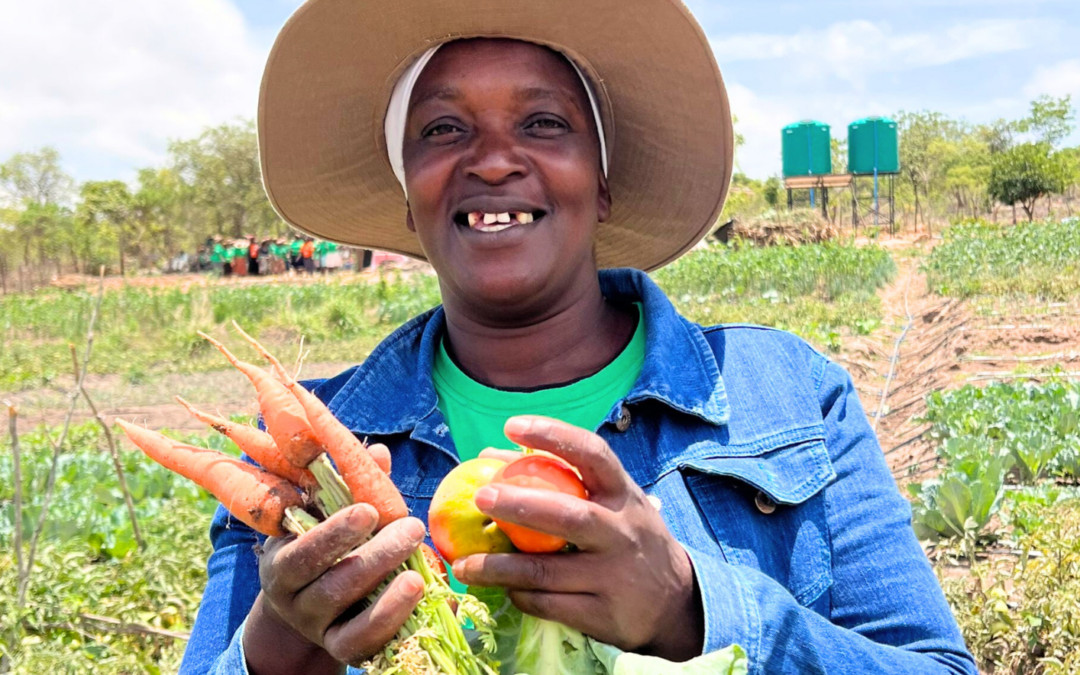
by dapp | May 29, 2024 | Blog, News
As the world commemorates Menstrual Hygiene Day DAPP believes that promoting menstrual health and hygiene safeguards women’s dignity, privacy, bodily integrity and self-efficacy. However, in Zimbabwe more than 3 million women and girls menstruate and the majority of them do not have proper and sufficient menstrual protection. According to the study by SNV Zimbabwe, 72% of menstruating schoolgirls do not use sanitary products simply because they cannot afford them. The study also showed that 62% of schoolgirls in Zimbabwe miss school every month due to lack of sanitary pads and 70% of these girls are not even aware of any sanitary pads brand on the market.
Period poverty is real and currently in Zimbabwe the biggest obstacle to using sanitary pads is affordability as one pack of pads costing for USD 1.00 or more, meaning that someone who has a heavy flow will need more than $3 which is difficult for some girls given the current economic conditions. Living in marginalized communities further complicates things as parents are fighting to put food on the table let alone find money for sanitary pads. Many women resort to using worn-out garments, newspapers and leaves, rags, cardboard, newspapers, tissues, socks, leaves, cow dung and other unsanitary means to try and manage their flows resulting in infections, leakages and discomfort.
An interview with adolescent girls highlighted that due to period poverty, the girls always fail to concentrate in class and sometimes miss school altogether because of the shame associated with soiling their clothes. As DAPP, part of our work is to empower the community especially adolescents about menstrual hygiene and combating period poverty. We also initiate programs where we train adolescent girls and young women to make period-friendly sanitation reusable sanitary pads.
“In my community, girls and women have limited economic opportunities which exposes them to gender-based violence, early marriages, period poverty and HIV and AIDS. Faced with these realities, I decided to use my spare time to volunteer at Hope Bindura where I offer basic sewing training of reusable sanitary pads to local young girls” says Paidamoyo
“Through the support of HOPE Bindura, we trained 25 girls from Wayerera Secondary School and 6 girls at Ponesai Vanhu Children’s Home to make sanitary pads. I am enjoying the experience and improvement of period poverty by adolescent girls. I am looking forward to seeing all the trained girls and young women cascading and having their period with comfort.” says Paidamoyo.
Due to such training from Paida, most girls now feel relieved to have reusable sanitary pads for both personal use and income generation as well.

by dapp | May 20, 2024 | Blog, News
Recognizing how veld-fires take a toll on communities and the environment, destroying trees, animals, infrastructure and in some cases killing people, DAPP Zimbabwe has initiated intensive actions within its programs to fight this deadly scourge.
DAPP Zimbabwe participated in the National Fire Week campaign on May 15th at Masimbe Farm in Shamva, Mashonaland Central. The Minister of Environment, Climate, and Wildlife, Sithembiso Nyoni, the Minister of State and Devolution for Mashonaland Central, Captain (Rtd) Christopher Magomo, and officials from the Environment Management Agency (EMA) all graced the event and our tent.
During their tour of our exhibition tent, these top government officials had the opportunity to speak with DAPP Frontline Institute teacher Tawanda Nyandoro, who informed them about DAPP’s community-based veld fire reduction initiatives, which include the campaign for installation of fire guards in communities, as well as education and awareness actions starting at the family level.
The fire season campaign runs from the end of July to the end of October, and this year’s campaign launch was themed “Prevent veld fires- protect the environment and livelihoods.”
Fears in communities are likely to be heightened amidst the El Nino induced drought the country is currently battling which necessitates veld fire management efforts.

by dapp | May 17, 2024 | Blog, News
DAPP CELEBRATES INTERNATIONAL DAY OF FAMILIES
On May 14, DAPP Zimbabwe participated in the International Day of Families commemorations in Dotito, Mashonaland Central Province. Senator Monica Mutsvangwa, Minister of Women Affairs, Community, Small and Medium Enterprise Development, the guest of honour at the event emphasized the importance of communities working together to address the effects of climate change for the benefit of families.
Gracing our exhibition tent, Minister Mutsvangwa learned of DAPP Zimbabwe’s engagements with communities through initiatives that address global warming and climate change issues affecting families. We showcased some of our initiatives which include Farmer’s Clubs, From Communal to Commercial (C to C) models, and our efficient Firewood Saving Cook project.
The commemoration themed “Families and Climate Change” which is aligned with our activities on information sharing and community engagements through awareness campaigns on climate mitigation and adaptation measures particularly in hard-to-reach places.
Also, in attendance at the ceremony were representatives from the government, public and private sectors, as well as members from the communities. Representing DAPP were members from all our projects in Mashonaland Central, namely: Hope Bindura, Child Aid Bindura/Shamva, From Communal to Commercial (C to C), Ponesai Vanhu Technical College, Frontline Institute, Park Estate, and Ponesai Vanhu Children’s Home.

by dapp | May 14, 2024 | Blog, News
We are pleased to present our 2023 Annual Progress Report, detailed versionhttps://dapp-zimbabwe.org/wp-content/uploads/sites/312/2024/05/Annual-Report-2023-web-version-compressed.pdf. This report highlights our combined efforts in improving people’s lives in Mashonaland Central, Manicaland, and Masvingo provinces within our thematic areas of education, agriculture, health, community development, and disaster response.
Throughout the year, we made significant strides, particularly on pressing concerns such as global warming, climate change, and cholera epidemics. Our people-centered approach has not only produced excellent results, but it has also generated long-term collaboration with local partners, government officials, and other key stakeholders.
May we invite you to read




